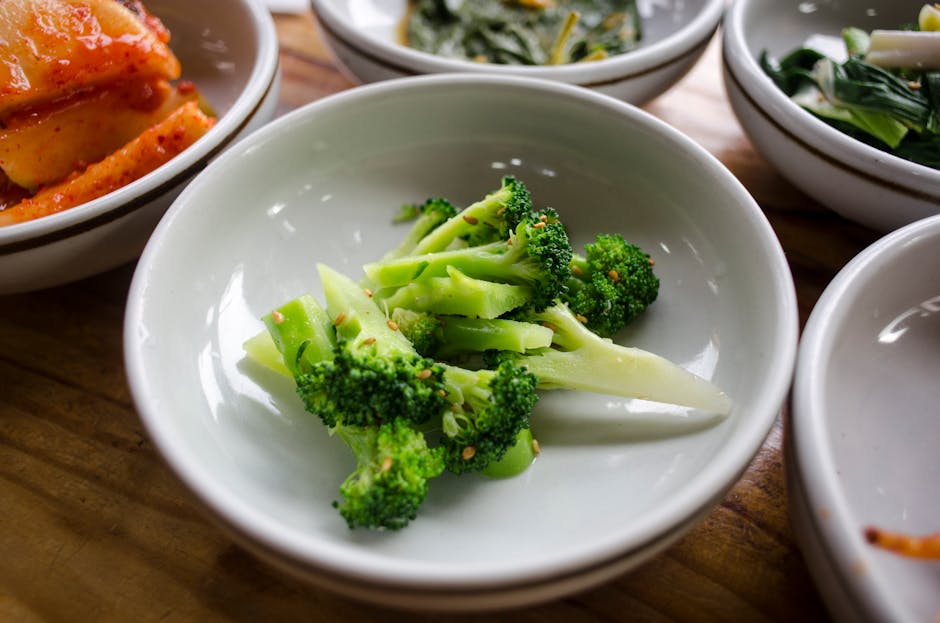
You Won't Believe the 5 Foods That Are Secretly Ruining Your Diet
The Hidden Enemies of Healthy Eating
We’ve all been there: diligently tracking our daily intake, avoiding unhealthy temptations, and pushing through grueling workouts to get that perfect beach body. But despite our best efforts, it’s easy to fall into the trap of sabotaging our own progress without even realizing it. The truth is, some foods that are commonly considered “healthy” can actually be doing more harm than good when consumed in excess or as part of a specific diet.
These sneaky culprits often masquerade as nutritious choices, making them all the more insidious. They can sneak into our meals and snacks under the guise of being wholesome and beneficial, only to reveal their true nature once we’ve become complacent in our eating habits. So, what are these stealthy saboteurs? And how can you avoid falling victim to their allure?
Let’s take a closer look at five foods that might be secretly ruining your diet.
1. Fruit Juice
While an occasional glass of freshly squeezed orange juice or apple cider may not seem like a significant contributor to weight gain, the reality is that fruit juices can be major culprits when it comes to sabotaging our diets. The issue lies in their high sugar content and lack of fiber. A single serving of some popular fruit juices can contain up to 30 grams of sugar, which is more than the recommended daily intake.
The problem is further exacerbated by the fact that many commercial fruit juices are made from concentrated extracts, rather than actual fruits themselves. This means that the natural fibers and antioxidants found in whole fruits are stripped away, leaving behind a sugary concoction that can wreak havoc on our digestive systems and overall health. Even seemingly healthy options like cranberry or grapefruit juice can be detrimental when consumed excessively.
The bottom line: If you want to reap the benefits of fruit’s nutrients without sabotaging your diet, stick to whole fruits and avoid fruit juices altogether.
2. Granola
That tasty bowl of granola with almond milk and fresh berries may seem like a healthy way to start the day, but the truth is that it can be a major contributor to weight gain. Granola is essentially just toasted bread in disguise, made from rolled oats and often containing added sugars, oils, and even artificial flavorings.
A single serving of granola can range from 100 to 200 calories, with some commercial brands packing up to 250% more sugar than their natural counterparts. This excessive sugar content can lead to insulin resistance, inflammation, and a host of other issues that are far from healthy. And let’s not forget the added oils used in many store-bought granolas – these can be a major source of saturated fats and calories.
The take-home: If you’re addicted to that crunchy texture and nutty flavor, try making your own granola at home using natural ingredients and minimal sugar content.
3. Protein Bars
They may seem like the ultimate convenience food for fitness enthusiasts and busy professionals alike, but many commercial protein bars are actually more detrimental than they’re worth. These heavily processed snacks often contain a cocktail of added sugars, artificial flavorings, and preservatives that can be downright toxic to our bodies.
The high sugar content in these bars is particularly concerning, as it can lead to a rapid spike in blood glucose followed by a crash – this can leave you feeling lethargic and sluggish. Moreover, many protein bars are made from inferior sources of protein such as pea or rice-based powders that lack the essential amino acids our bodies need.
The verdict: If you’re going to indulge in these snack bars, choose ones with minimal sugar content and opt for natural ingredients whenever possible.
4. Low-Fat Yogurt
That cup of low-fat yogurt may seem like a guilt-free indulgence, but the truth is that it can be doing more harm than good when consumed excessively. The issue lies in the processing methods used to remove the fat content from traditional yogurts.
When we take out the fat, we’re left with added sugars and artificial sweeteners to compensate for the lost flavor – this can lead to insulin resistance and an increased risk of chronic diseases like diabetes and heart disease. Moreover, many commercial low-fat yogurts are made from inferior sources of milk that lack the essential nutrients found in full-fat dairy products.
The bottom line: If you want to enjoy yogurt without sabotaging your diet, stick to whole-fat options or choose Greek yogurt with its higher protein content and minimal sugar content.
5. Cereals
That bowl of oatmeal or cereal may seem like a wholesome way to start the day, but some popular brands can be major culprits when it comes to added sugars and artificial flavorings. A single serving of many commercial cereals contains up to 10 grams of sugar – that’s almost half the daily recommended intake.
The issue lies in the processing methods used to create these convenient breakfast options. Many commercial cereals are made from refined flours and grains, stripped of their natural nutrients and fiber content. This can lead to a rapid spike in blood glucose followed by a crash, leaving you feeling lethargic and sluggish throughout the morning.
The takeaway: If you’re going to enjoy cereal, choose whole-grain options with minimal sugar content or make your own at home using natural ingredients.
As we’ve seen, it’s easy to fall into the trap of sabotaging our diets without even realizing it. By being aware of these five foods that are secretly ruining our diet, we can take steps to avoid them and focus on whole, nutrient-dense meals instead. Remember, a healthy relationship with food is all about balance and moderation – not deprivation or restriction. So next time you’re tempted by one of these stealthy saboteurs, think twice before indulging!





